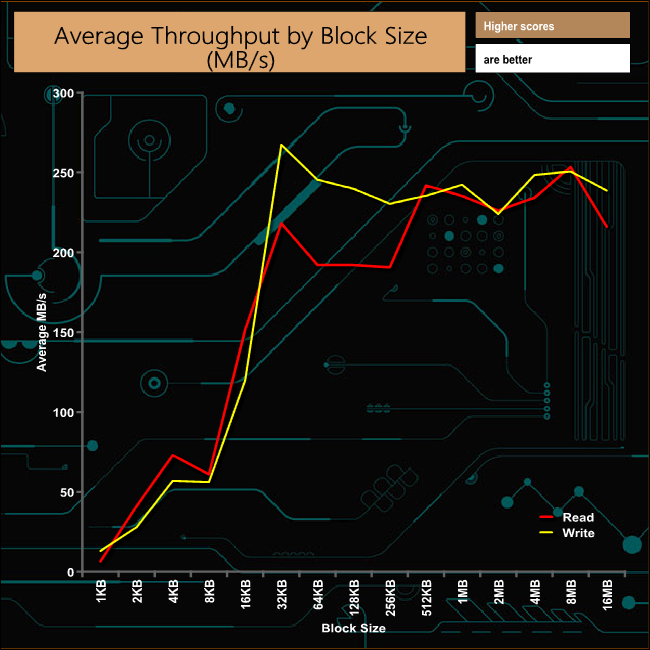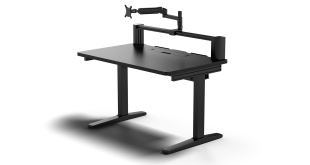
In the throughput test, the drive's performance plateaued out between 4KB and 8KB blocks sizes for both read and writes before the write performance raced away to a peak of 267.27MB/s at a 32KB block size. Reads were slower to reach their peak, which came at the 512KB block stage at 241.83MB/s.
Tags 12TB Enterprise grade gold Review WD Western Digital (WD) Gold 12TB Hard Drive
Check Also
Corsair Platform:4 Desk Review
The Platform:4 desk adds a smaller option to the desk line-up from gaming giants Corsair
 KitGuru KitGuru.net – Tech News | Hardware News | Hardware Reviews | IOS | Mobile | Gaming | Graphics Cards
KitGuru KitGuru.net – Tech News | Hardware News | Hardware Reviews | IOS | Mobile | Gaming | Graphics Cards



550MB a year work load.! i hope they mean TB
256GB cache ?
MB*
What about noise levels and temperatures? For home NAS usage, those are very relevant parameters when choosing HDDs.
It is never mentioned. Many people want to know, but every time they seem to “forget” that, or answer any questions about it. Definitely much more important than 240 or 260MBs throughput..
“WD claim a 550MB a year work load.” This doesn’t look right
I know – if 550MB per year, it would take you the entire lifetime to fill up the drive 😉
It IS 550TB
Real specs:
Designed with a workload rating up to 550TB per year
Up to 2.5M hours MTBF with a 5 year limited warranty
4th generation HelioSeal technology (12TB)
RAFF technology for vibration protection
RAID-specific time-limited error recovery (TLER)
Was going to buy seagate, but found these beauties at a great price so going in for 4 initially 🙂
Same spam bots on all the tech sites. I doubt “Cheryl” could earn that much in one month unless it was through illicit means.
550TB per year doesn’t sound much. That’s like 45TB per month, 11TB per week, 1,63 TB per day. How is this a high workload?
Compared to ssd drives it is a lot. Compared to seagate enterprise drives they are about the same. Barracudas are at 300TB year. I have done more than the specced workloads without any issues. Typical use even in enterprise is not that high unless you are writing TB data daily such as telecommunications companies do. This only recently appeared as part of hard drive specs. You can clearly exceed the workload but if the drive dies prematurely I bet they try to get out of warranty replacement. But having worked telecom, we constantly replaced hard drives due to heavy workloads back in the early 2000s.